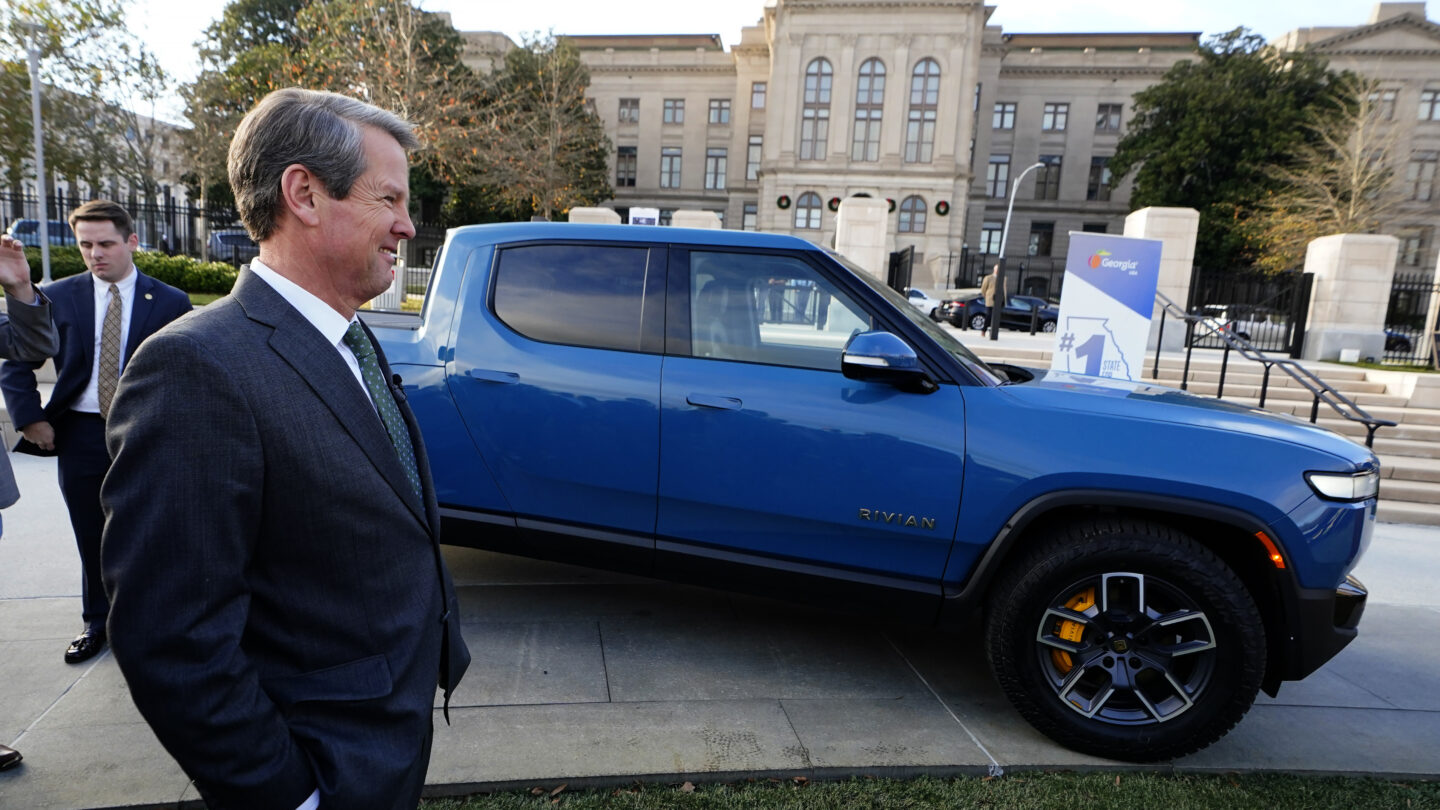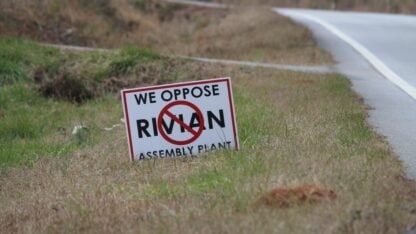Rahul Bali contributed audio for this story.
The state of Georgia and local governments will give Rivian Automotive $1.5 billion of incentives to built a 7,500-job, $5 billion electric vehicle plant east of Atlanta, according to documents the company and state signed Monday.
That would be, by far, the largest incentive package Georgia has ever offered to a company and would be the 15th largest incentive package any American state has ever given a private entity according to Good Jobs First, a group critical of subsidies to private companies.
Georgia Economic Development Commissioner Pat Wilson says the size of the package reflects the size of the largest single industrial announcement in Georgia history, including a pledge that the company will reach the full investment and job targets by the end of 2028, with jobs paying an average of $56,000 a year, plus benefits.
“It’s absolutely appropriate because they’re creating more jobs,” Wilson said.
Rivian, based in Irvine, California, is a startup manufacturer of electric trucks and commercial delivery vans, challenging both established automakers like Ford and General Motors and electric vehicle leader Tesla. The company is already producing vehicles in Normal, Illinois. Rivian hopes to break ground as early as this summer and begin production in 2024, sprinting toward producing 400,000 vehicles a year in Georgia as electric vehicle makers try to gain market share.
The plant has been beset by fierce local opposition, though, from residents who say development on the 2,000-acre (800-hectare) site will spoil their rural quality of life.
The site, between Social Circle and Rutledge, is about 45 miles (70 kilometers) east of downtown Atlanta, in an area just beyond the frontier of intensive suburban development.
The state took over planning and zoning for the project after opponents overwhelmed Morgan County officials. Residents have voiced concerns about possible well-water contamination, light pollution and the disruption of wildlife habitats and farmland for heavy industry. Wilson said a site plan and other documents released Monday show Rivian is responding to those concerns, shifting the plant footprint away from wetlands and agreeing to limit light pollution.
Local governments have agreed to $700 million in property tax breaks, although Rivian has agreed to make more than $900 million in payments in lieu of taxes over 25 years beginning in 2023.
The state would spend $200 million to buy the site, grade it, build road improvements including a new Interstate 20 interchange and extend utilities. The state would spend $62.5 million to build a dedicated training center and a projected $27 million on providing job training.
Other major benefits include a $200 million income tax credit, at $5,250 per job over five years. If Rivian did not owe that much state corporate income tax, the state would give personal income taxes collected from workers instead. Georgia also estimates Rivian would save $175 million from a sales tax exemption on machinery and $105 million on a sales tax exemption on construction materials.
Kia got more than $450 million in incentives for its plant southwest of Atlanta. Georgia has promised $300 million of incentives to the $2.6 billion, 2,600-worker battery plant being built by SK Innovation in Commerce, Georgia, northeast of Atlanta.
Rivian currently plans two models for consumers: the R1T pickup with a base price of $67,500 and the R1S SUV, with a base price of $70,000. The truck was recently named Motor Trend’s 2022 truck of the year.
Amazon, which owns a slice of the company, has ordered 100,000 delivery vans, launching Rivian into the commercial vehicle business.
Rivian is flush with cash following a $11.9 billion stock offering Nov. 10 that took the company public, allowing it to finance the new plant.







